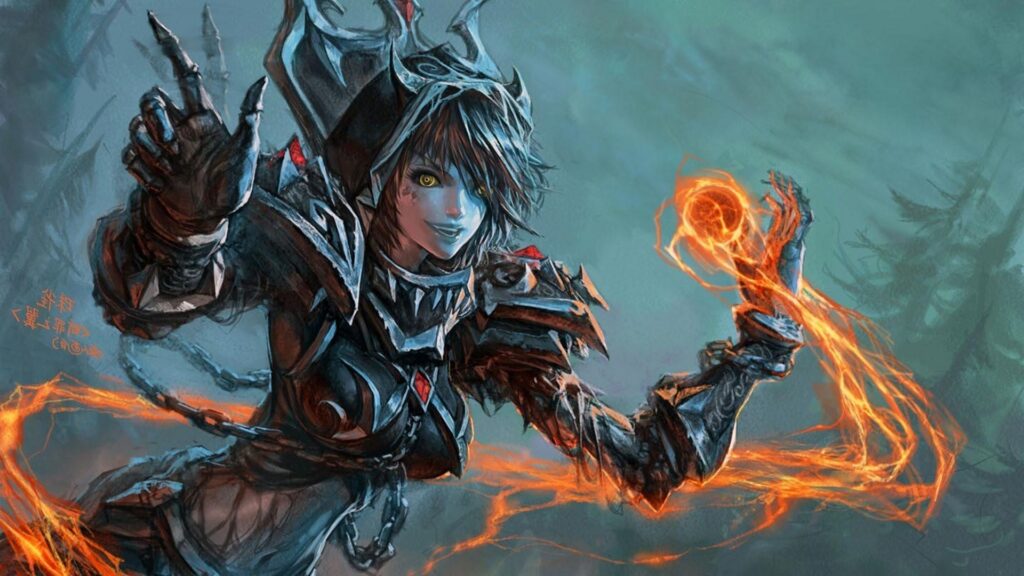Massively Multiplayer refers to the vast amount of people that are simultaneously involved in this gaming genre. Online refers to the place where the game environment and all its players reside. MMOs exist “on and over the internet” [1]. As technology developed these MMO environments have become more responsive to the players and can hold a large amount of players at any one time.
The genre of MMOs is characterised not only by its vast amount of players, but by that these players interact in a “single, integrated, persistent gaming world.” [2].
There are several MMO game genres, of which Massively Multiplayer Online Role Playing Games are the most popular [2]. Examples are World of Warcraft, Eve Online, The Elder Scrolls or Final Fantasy online. This genre leans heavily on avatar development and in-game interactions between gamers and between gamers and Non Playing Characters.
MMORPGs add physicality, social interaction, avatar-mediated play, vertical game play and perpetuity [1] to the persistence of any MMO.

All the players interact in a single and integrated world, where their actions have effect on other players, the environment or the overall narrative. This brings in the technical challenge of tracking and supporting the massive amount of players and their actions and keeping the virtual world updated accordingly for everyone – in real time. To lessen the burden of such massive data traffic a game is often run split over several servers [2]. The persistent world of an MMO does not wait for any one player to start or stop playing, the narrative and development of the game world continues regardless.
“These Massively Multi-player Online Role Playing Games
are make believe universes
in which real people interact with other real people
through digital representations of themselves;
millions of people participate in these worlds”
(Castronova, 2007)
MMOs have had much attention from researchers in the area of excessive online gaming, with concerns especially on addiction and mental disorders and rightfully so.
The pervasive and highly social aspects of MMO – as well as the multimillion player base – raised theories and research on the addictive nature of this gaming genre [4]. Time spent in this type of gaming environment sparked all sorts of concerns about social isolation.
However, research has shown that playing a MMORPG also increases social capital [5]. Players may be represented by avatars running around in fantasy worlds but the interactions between the players and the relationships forged are very real.
References
1. Chan, E., & Vorderer, P. (2006). Massively Multiplayer Online Games. In P. Vorderer & J. Bryant (Eds.), Playing video games: motives, responses, and consequences (pp. 77-90). Mahwah NJ: Lawrence Erlbaum.
2. Chu, H. S. (2008). Building a simple yet powerful MMO game architecture, Part 1: Introduction. A simple, elegant implementation that delivers the functionality needed by any MMO game (pp. 10): IBM Developer Works.
3. Castronova, E. (2007). Exodus to the Virtual World: How Online Fun Is Changing Reality: St Martins Press.
4. Kardefelt-Winther, D. (2014). The moderating role of psychosocial well-being on the relationship between escapism and excessive online gaming. Computers in Human Behavior, 38, 68-74.
5. Wellman, B., Haase, A. Q., Witte, J., & Hampton, K. (2001). Does the internet increase, decrease or supplement social capital? Social networks, participation, and community commitment. The american behavioral scientist, 45(3), 436-455.
